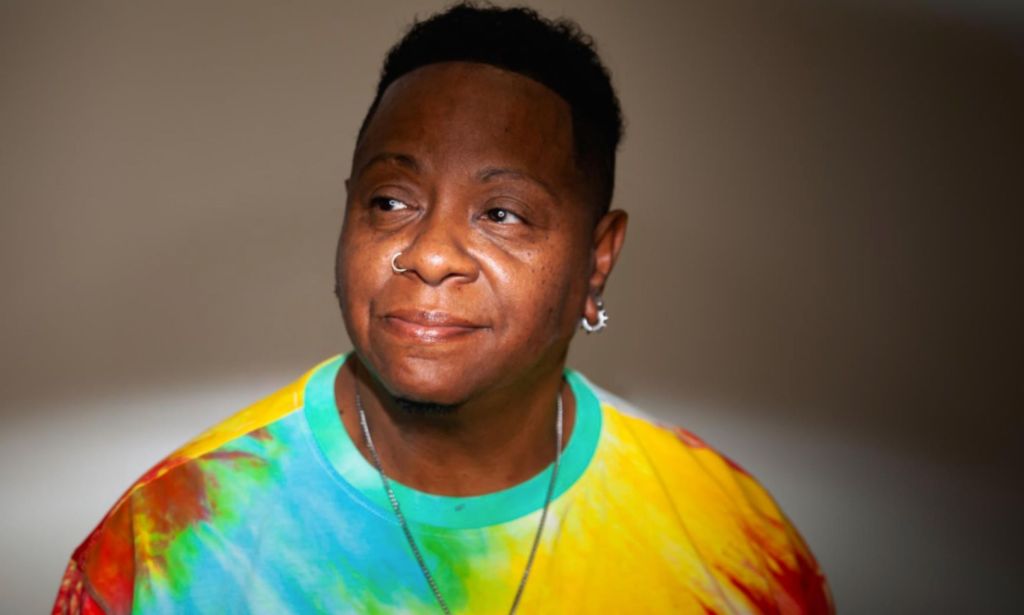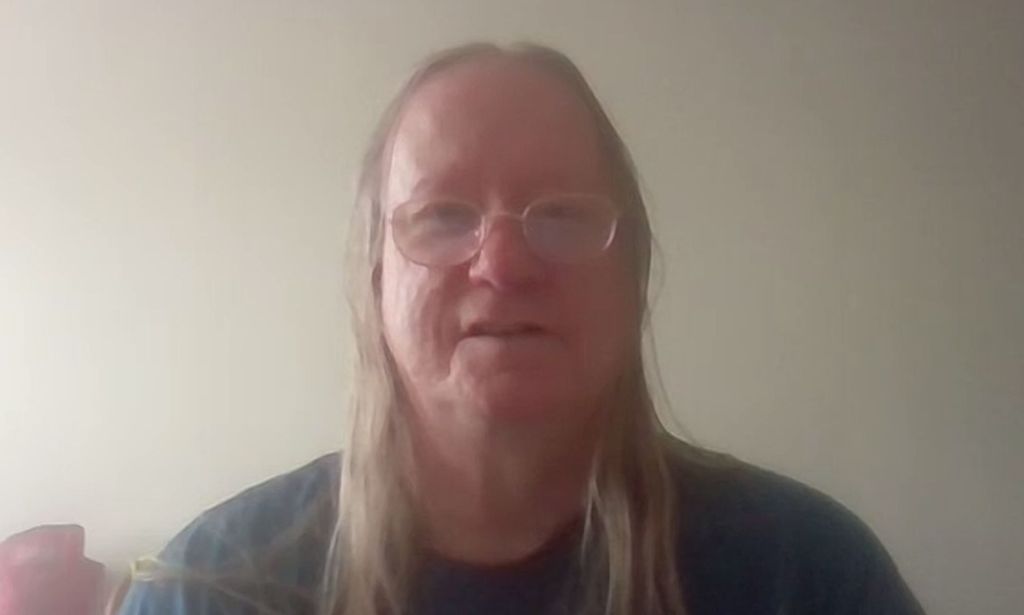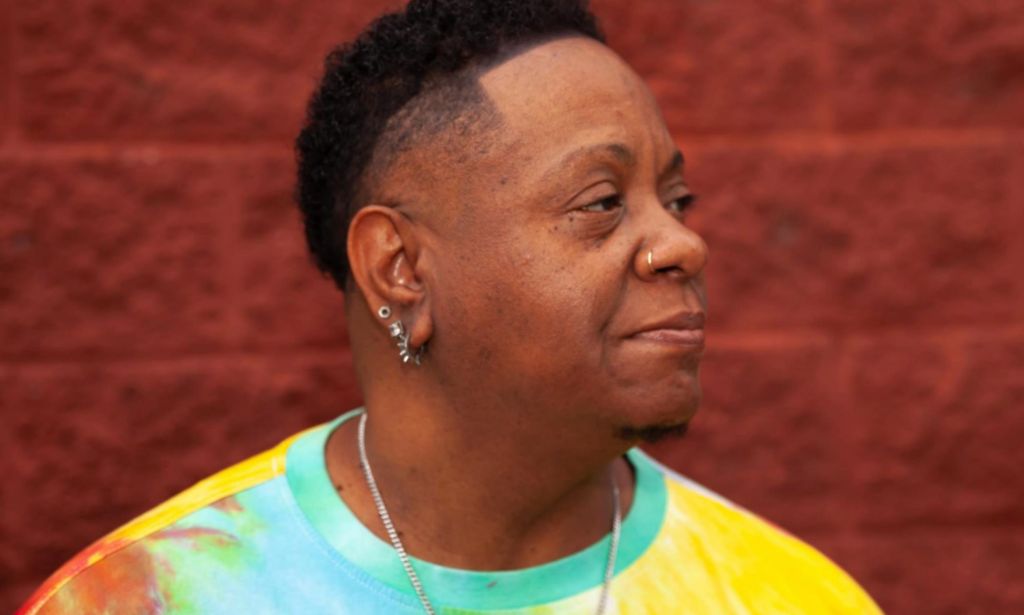Trans elders on the ‘hope’ found in ageing authentically

[ad_1]
Growing up, Lonnie ‘Love’ Kenebrew’s “spirit” told him he was different, but it wasn’t until he saw an Oprah episode on trans issues that he finally “saw the man” in the mirror.
Kenebrew was born in 1965 into a family of 11 other children, living in Chicago, Illinois. His mother and father were ministers, and the young trans man knew he had to hide his truth because of his parent’s involvement in their religious community.
“I knew when I was little that I was different, and I knew I had to protect that something inside of me that was different,” he says.
“The spirit spoke to me and said: ‘If you expose yourself, your parents wouldn’t accept you’, and I knew that at three, four, five years old.”
As a teen, his parents “disassociated” from his godparents because they had an intersex baby. His godmother told him that “Church people didn’t want anything to do with her” because she supported her child’s transition.
“It kinda threw up a warning sign to me to be careful about what I revealed to my mother and my father,” he recalls.
It wasn’t until 2016, after he “abruptly came home” from living in Arizona, that he realised it was “time to be [his] authentic self”.
But Kenebrew felt “lost” while staying in his sister’s basement upon his return to Chicago. He felt like the “first half of [his] life flatlined”, and everything had “just died”. He felt the need to “rediscover” himself.
‘I’m going to be open and I’m going to be bold. I’m going to be my authentic self’
And he did just that while watching an episode of The Oprah Winfrey Show on gender-affirming healthcare with Dr Marci Bowers, a world-renowned trans surgeon and healthcare expert.
“[Oprah] was interviewing Marci, [who] was talking about top surgery and where they are now and different things like that,” Kenebrew says.
“I had an ‘aha’ moment, and I got up from the TV and went to the bathroom. I looked at myself in the mirror, and I saw the man in me. I knew then biologically I was an intersex baby, too.
“I knew at 13 something was different because I started going through puberty, and things were going different downstairs.
“I asked my mother what was going on and she freaked out. She never took me to the gynaecologist and didn’t address it. Because she didn’t address it, I didn’t address it.”

He recalls a promise that he made to his cousin Jimmy, a gay man who lived with AIDS.
Jimmy was kind, showed love and had immense joy during his life. When he died, aged 33, Kenebrew promised: “Once I find out who I am, I’m going to be open and I’m going to be bold. I’m going to be my authentic self.”
That didn’t happen until that day in his sister’s basement in 2016 when “God gave [him] a revelation” that he was a trans man.
Although the road to coming out as trans came with bumps, Kenebrew has built a supportive community around him, had top and bottom surgery and mentored students through the LGBTQ+ Intergenerational Dialogue Project, which connects queer university students with elders in the community for a year-long series of discussions, creative work and dinners.
‘I thought I would teach LGBTQ+ youth, and they taught me’
Trans woman Reina also took part in the LGBTQ+ Intergenerational Dialogue Project. In her 60s, she says young LGBTQ+ people helped her because they “taught [her] the language” around the queer community.
“I thought I was going to teach them, and they taught me,” she laughs.
Reina is someone who will pursue her goals headfirst once she decides on something, and says that spirit was reflected in how she decided to transition after coming out in 2019.
“I decided I was a woman, and I just said: ‘To hell with everybody else, I’m going to dress as I please. I’m going to walk as I please. I’m going to think as I please’,” she says.

As a teen, Reina had “heavy thoughts” of gender dysphoria and didn’t understand what being trans was because she was raised Catholic. Those “thoughts were foreign to the teachings”, she says.
“I kept it to myself. I suppressed it because I thought I was crazy. It wasn’t until I was 62, because I was trying to be honest with myself, because I wanted to improve my chances of having a relationship, that I kept focusing inward.
“I was reading these books about trans women, and thinking: ‘This is me’. It was an epiphany. It was like I had lifted a tonne of weight off my shoulders, and I was really happy.
“I was surprised. But it took me, after reading the one book, three or four days later, and I just came out.”
Now, Reina experiences “relief” and trans joy in the ability to be herself. She’s worn leggings and tunics or blouses for three years, to the point where she doesn’t “even think about it”, except to consider if things match.
She believes it’s important to have conversations about coming out later in life and ageing authentically because it gives younger LGBTQ+ people hope.
“Their life has had some struggles socially, and seeing people in their 30s and 40s, and even 60s and 70s, makes them think: ‘I can survive. I can get through this’,” she says.
“That’s important to know, because sometimes humans tend to think negatively or remember negative things. So, a lot of times their message is: ‘I’m not going to make it because it’s too difficult’. But when they see us, they know it’s not as bad as they thought.”
For Kenebrew, trans joy is “looking within and healing the trauma” that he went through as a child.

He spent a lot of time in prayer and meditation, thinking about “different checkpoints” in his life where he was able to “transit” to his authentic self.
“As we look back over the checkpoints of my transition, the different points where I changed and turned, all the journey, the good days, the bad days, it’s all of that and accepting yourself for you are, [as well as] being able to express it with words, in music, in art, to share a smile, to help someone else, to let someone else know what I’m going through.
“And if I can make it through, you can make it through. It’s all about self-love, self-care.”
[ad_2]